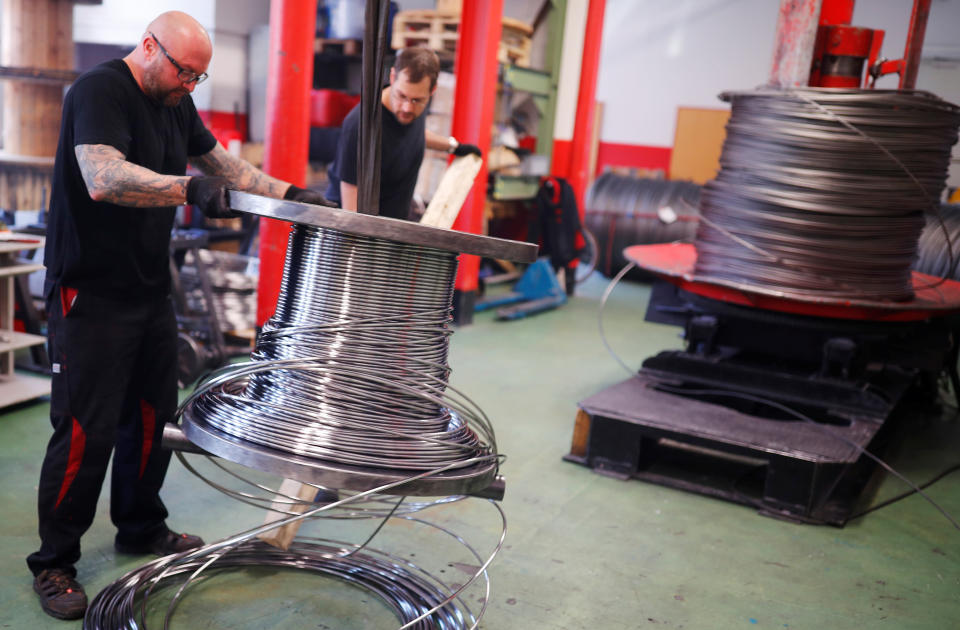German factories show glimmer of recovery

After months of gloom and pessimism, Germany today reported an unexpected 1.3% growth in factory orders in September, from the month before, beating analyst expectations for 0.1% growth.
The German economics ministry said in a statement that September’s rise could “signal a bottoming out” of factory orders. It is not all positive though as orders were 5.4% lower than the same month in 2018.
In its autumn survey, the Association of Chambers of Commerce and Industry found that German exporters have not felt this pessimistic about the future since the financial crisis of 2008-09. They point to sluggish international demand, trade conflicts, and Brexit as the principal threats to their businesses moving into next year.
READ MORE: German firms have not been this pessimistic since 2008
Meanwhile, for October, IHS Markit’s Purchasing Managers Index score for the German manufacturing sector fell to 42.1 — anything under 50 is a contraction. “The German manufacturing sector remains in recession and continues to pose a threat to the domestic economy through a rising number of factory job losses,” said Phil Smith from IHS Markit.
READ MORE: Germany’s manufacturing sector remains in recession
The German economy is expected to be in a technical recession in this current quarter. But while the European Central Bank keeps up the pressure on Germany to boost public spending to let go of its obsessive commitment to a balanced budget, the country’s finance minister Olaf Scholz is adamant that the country’s needs to maintain what it calls its “black zero” of no debt. He commented recently that the economic situation in Germany or Europe does not require “special interventions.”
Despite the issue causing divisions within her Christian Democrat party at home, Merkel is also quite reluctant to loosen the purse strings by much.

 Yahoo Finance
Yahoo Finance 